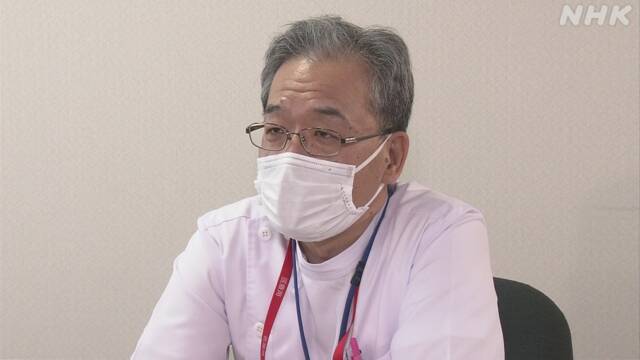Approximately 40% of patients with intractable diseases Avoid infection with new coronavirus and refrain from going to hospital June 7 4:09
Regarding the impact of the spread of the new coronavirus on the lives of patients with intractable diseases, a questionnaire conducted by a patient group in Hokkaido found that about 40% were refraining from visiting the hospital to avoid infection. Experts point out that patients need to consult with their doctors to continue their medical examinations, and that the government and hospitals should have a medical examination plan for each patient, assuming that the infectious disease will spread again.
The “Hokkaido Intractable Diseases”, which is made up of patients with intractable diseases living in Hokkaido and their families, conducted a questionnaire survey of 1,000 people last month, and 540 people answered.
As a result, when asked by multiple answers about the impact of the new coronavirus on patients and families living together,
39.8% of the respondents answered “I have canceled or refrained from visiting the hospital to avoid infections
”. 18.7% of
respondents were restricted from visiting or attending inpatients due to circumstances ▽ 7 % of respondents said that the disability during use or the nursing care service was interrupted/changed due to the office's convenience.
A man in his 70s with rheumatoid arthritis, who has severe pain and swelling in the joints of the whole body, said, ``I am worried about the infection, and I postpone medical examination and screening after surgery, but I am worried that it may worsen.'' I'm answering.
Dr. Seiji Kikuchi, director of the Hokkaido Medical Center, pointed out that there are some patients with intractable diseases whose symptoms worsen rapidly if they do not undergo regular medical examination and treatment. It is necessary to make a plan for each patient by the related organizations such as the government and hospitals so that the treatment can be continued, assuming that the infection will spread again."
Patients with intractable diseases who continue to worry about infection
Patients who use medicines that also reduce the immune system to treat intractable diseases are living with anxiety about the risk of new coronavirus infection.
Katsuaki Yamashita (55), an advertising business in Takigawa City, Hokkaido, takes an intravenous drip every two months to treat the incurable disease "Crohn's disease" that causes chronic inflammation of the mucous membranes of the large intestine and small intestine. I am.
Since the onset of the disease more than 40 years ago, he has been suffering from frequent severe abdominal pain, diarrhea, fever, etc. However, it is said that his symptoms are alleviated when he is treated.
However, I am worried that medicines may also reduce the immune system, making it more likely to be infected with the new coronavirus.
Mr. Yamashita regularly appears on local FM radio in order to let people know the thoughts of patients with intractable diseases.
In a program that appeared on the day NHK interviewed, Mr. Yamashita said last month that he was treated at a hospital in Asahikawa, saying, "I was scared to go to the hospital now. Some people have to go, and I'm really careful about the infection," he said.
After that, he said, "I want you to hear that we are talking this way and realize that there are such people," and appealed to many people to work on infection prevention.
Patient group "to highlight anxiety of patients with intractable diseases"
Yasuko Masuda, the representative director of the “Hokkaido Intractable Diseases” who conducted the questionnaire, points out that the anxiety of patients with intractable diseases regarding infection has been highlighted.
Masuda said, “In addition to the usual anxiety about intractable diseases, anxiety about being infected with the new coronavirus has increased the mental burden on patients. The number of patients with so-called “corona depression” is increasing. I think."
In addition, "I am concerned about the impact that about 40% of patients stop commuting because of fear of infection in hospitals. Medical institutions will consult with intractable disease patients and conduct examinations to establish a reliable examination system. , The country urgently needs to develop new coronavirus vaccines and therapeutics."

